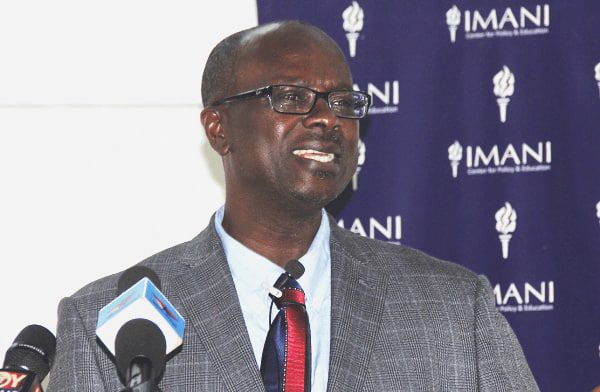Professor Stephen Kwaku Asare’s call for reform in Ghana’s political financing system stems from a deep concern that the current structure, characterized by exorbitant nomination fees and opaque development levies, is eroding the foundations of democracy. He argues that the prevailing system favors the wealthy, creating an uneven playing field where access to political power is determined by financial capacity rather than merit, competence, or commitment to public service. This system, he contends, effectively disenfranchises capable individuals from less privileged backgrounds, thereby limiting the diversity of voices and perspectives in the political arena. His critique highlights the urgent need to revisit the existing framework and implement measures that ensure a more inclusive and equitable political landscape.
The exorbitant fees associated with vying for political office, as exemplified by the New Patriotic Party’s (NPP) recent announcement of a ₵600,000 fee package for its 2026 flagbearer aspirants, serve as a stark illustration of the financial barriers that hinder political participation. This hefty sum, comprising ₵100,000 for nomination forms and ₵500,000 for filing, with an additional yet-to-be-determined development levy, effectively transforms the electoral process into an auction where the highest bidder gains an advantage. This practice not only undermines the principles of equal opportunity and fair competition but also potentially opens the door to corruption and undue influence by wealthy donors. Professor Asare argues that such high fees create a system where political office becomes a commodity accessible primarily to the affluent, thereby perpetuating a cycle of political elitism.
Professor Asare’s advocacy for reform goes beyond simply criticizing the current system; he proposes concrete alternatives. He suggests capping nomination fees at a reasonable level to make them accessible to a wider range of potential candidates. He also calls for the abolition of development levies, which often lack transparency and accountability. As alternatives, he proposes exploring refundable deposits, where candidates receive their money back upon meeting certain criteria, or implementing signature thresholds, where candidates demonstrate public support by collecting a predetermined number of signatures from eligible voters. These measures, he believes, would create a more level playing field and encourage broader participation in the political process.
Furthermore, Professor Asare emphasizes the crucial role of the Electoral Commission (EC) in ensuring the integrity and fairness of the political financing system. He urges the EC to take a more proactive stance in regulating political parties and ensuring their operations align with the democratic values enshrined in the Constitution. This includes enforcing transparency in campaign financing, monitoring compliance with spending limits, and investigating potential violations. By strengthening the EC’s mandate and capacity in this area, Ghana can move toward a more accountable and transparent political landscape.
The core of Professor Asare’s argument is that democracy should not be a privilege reserved for the wealthy but a fundamental right accessible to all citizens, regardless of their financial standing. He stresses that the ability to contribute to the political discourse and seek public office should be based on merit, competence, and a genuine commitment to serving the people, not on the size of one’s bank account. He underscores that the current system not only disenfranchises potential leaders from less privileged backgrounds but also undermines public trust in the political process. When access to power is determined by wealth rather than merit, it erodes the very essence of democracy.
Professor Asare’s call for reform is a timely and crucial intervention in the ongoing debate on strengthening Ghana’s democratic institutions. His proposals offer a roadmap for creating a more inclusive and equitable political system where access to power is based on merit and service to the people, not on financial privilege. By addressing the distortions created by exorbitant fees and opaque levies, Ghana can foster a more vibrant and representative democracy that truly reflects the will of its citizens. This, he argues, is not just about improving the electoral process; it is about safeguarding the future of Ghanaian democracy.


